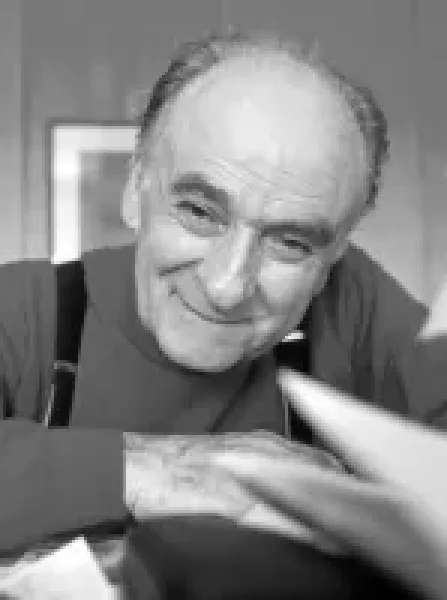Birth: Oct. 10, 1921, Pieve di Soligo (TV)
Death: Oct. 18, 2011, Conegliano (TV)
Andrea Zanzotto, born October 10, 1921, in Pieve di Soligo, in the province of Treviso, was an Italian poet who left an indelible mark on the literary landscape of the 20th century. Graduating in literature from the University of Padua in 1942 with a thesis on the work of Grazia Deledda, Zanzotto soon distinguished himself for his deep connection with the roots of his birthplace, as demonstrated in his work "Filò," where he explores the surrounding landscape with a contemplative gaze.
During World War II, he actively participated in the Veneto Resistance and after a brief period in Switzerland, he returned to Italy to pursue a teaching career. In 1950, he won the prestigious San Babila prize for the unpublished section, confirming his emerging talent in the Italian poetry scene. His early works, such as "Dietro il paesaggio" (1951), "Elegia e altri versi" (1954) and "Vocativo" (1957), made him known as one of the most promising poets of his time.
In the following years, Zanzotto consolidated his reputation with such significant works as "IX Ecloghe" (1962), which marked his debut as a literary critic, and "La Beltà" (1968), critically acclaimed and supported by such eminent figures as Pier Paolo Pasolini and Eugenio Montale. His poetic output continued to flourish in the 1970s with works such as "Pasque" (1973) and the anthology "Poesie" (1938-1972), while his collaboration with Federico Fellini on the film "Casanova" added a new backdrop to his artistic versatility.
The culmination of his career came with the trilogy "Il Galateo in Bosco" (1978-1984), for which he received the prestigious Viareggio Prize in 1979. Throughout his life, Zanzotto received numerous awards for his contributions to Italian literature, including winning the Etna-Taormina International Prize in 1977.
Andrea Zanzotto is remembered not only for his profound poetic sensibility, but also for his ability to explore the complexities of the human and natural landscape with a rich and evocative language that continues to inspire generations of readers and writers. His literary legacy remains a beacon in the vastness of the twentieth-century Italian poetic landscape.
Andrea Zanzotto in the Literary Park

